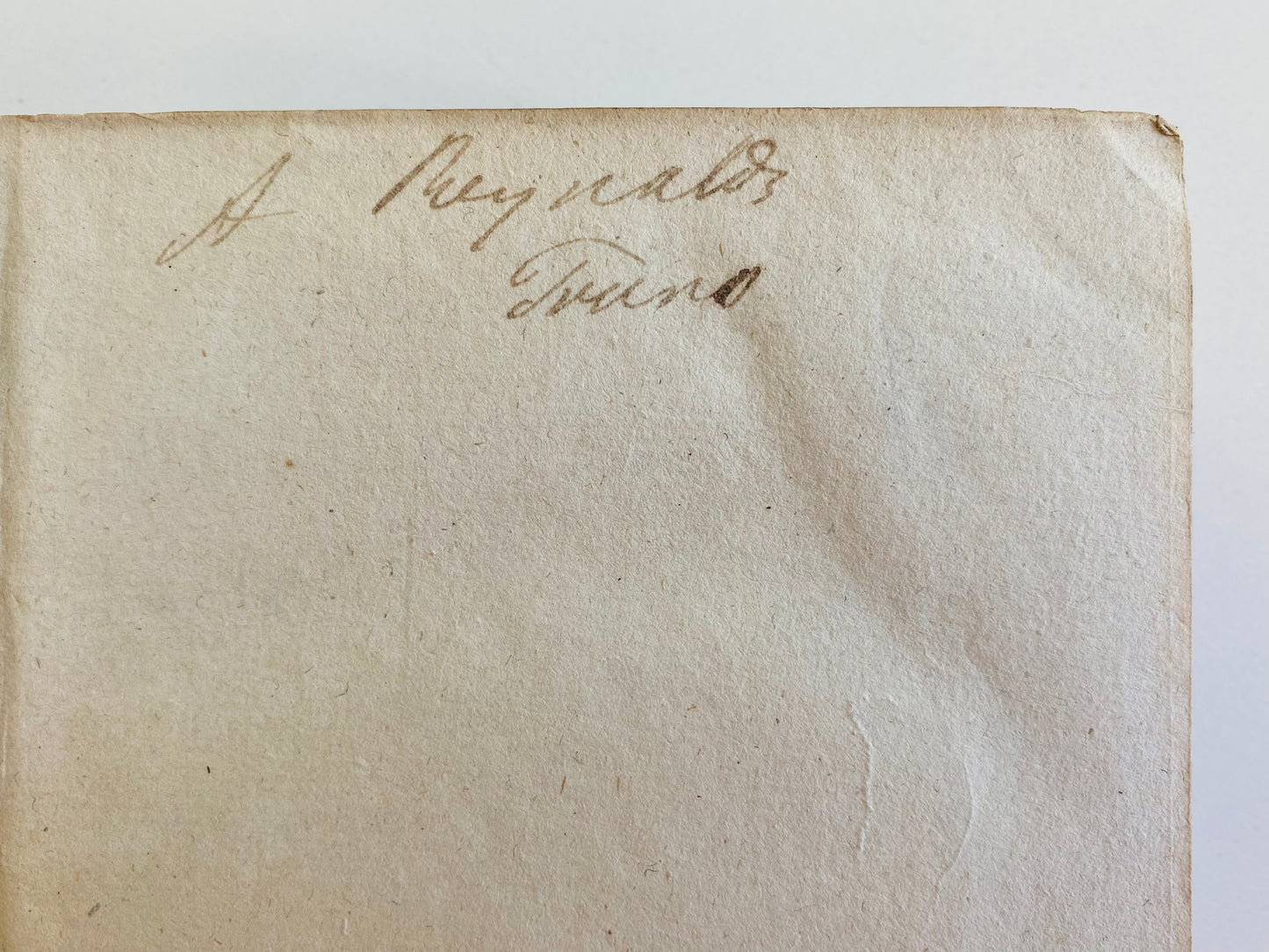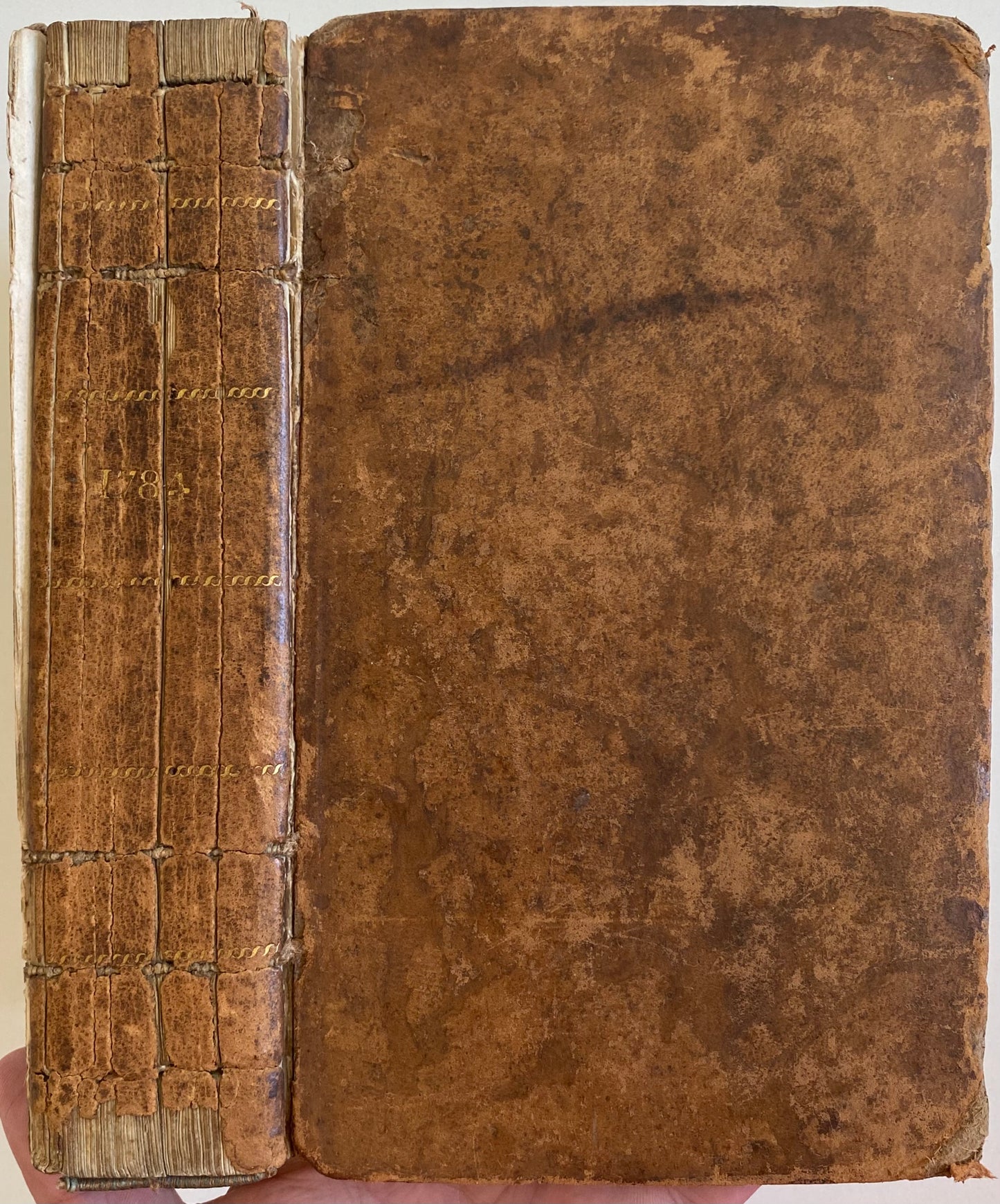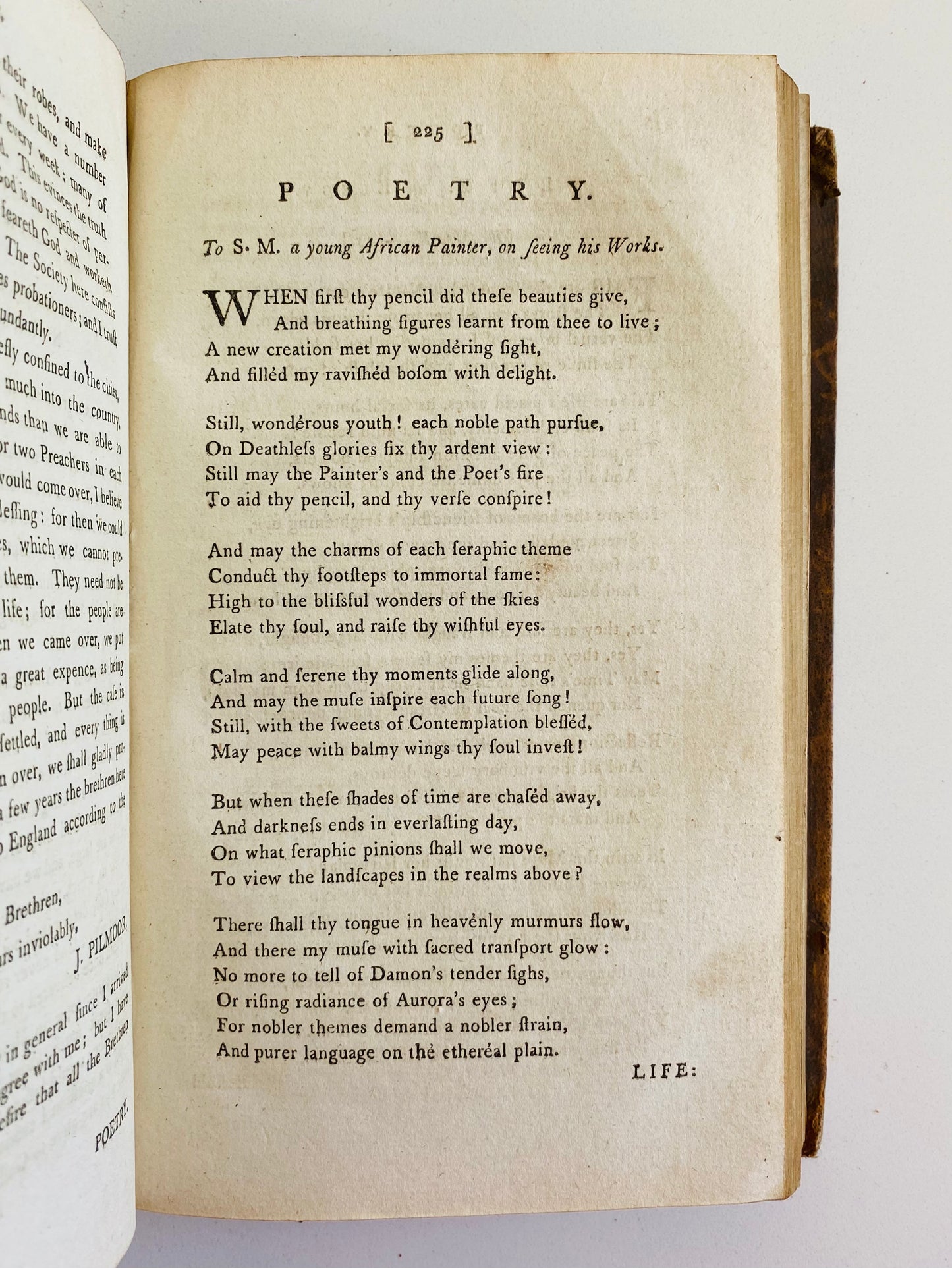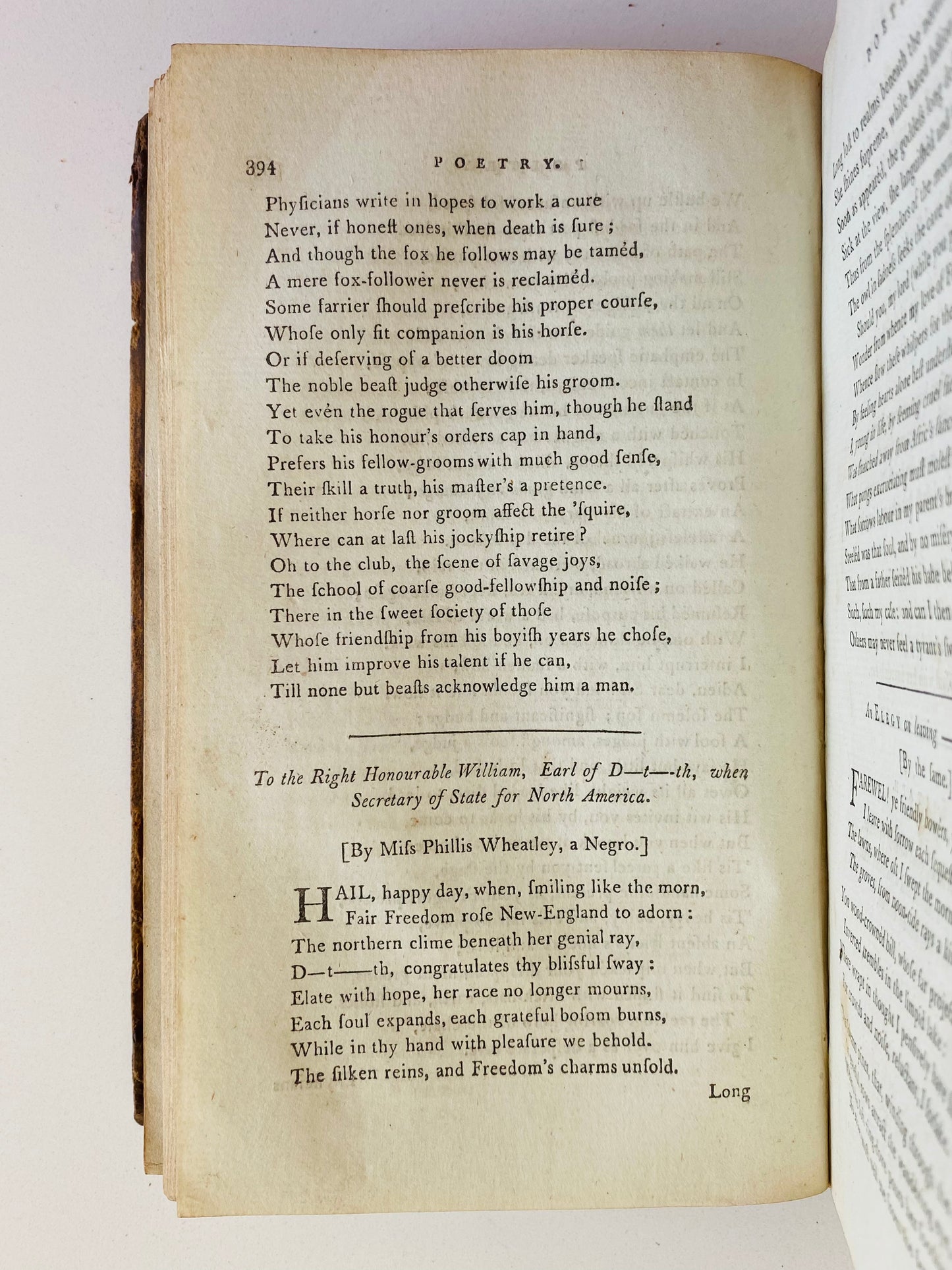Specs Fine Books
1784 PHILLIS WHEATLEY / JOHN WESLEY. The Arminian Magazine for 1784. Superb Methodist Provenance.
1784 PHILLIS WHEATLEY / JOHN WESLEY. The Arminian Magazine for 1784. Superb Methodist Provenance.
Couldn't load pickup availability
A very important year of the Arminian Magazine, under the editorial leadership of John Wesley, which included the last published poems of the converted "negro," Phillis Wheatley, who died in December of the same year.
Wonderful provenance as well. Signed on the blank ffep, "A. Reynolds. Truro." This refers to important female Methodist, Anna Reynolds whose diaries form an important resource on early Methodism and whose life was explored in, "Full Salvation. The Spirituality of Anna Reynolds of Truro, 1775-1840." by Thomas Albin. It is also signed by her husband on the main title.
Wesley, John [ed.] The Arminian Magazine, for the Year 1784, Consisting of Extracts and Original Treatises on Universal Redemption. London. J. Paramore. 1784. 676pp.
Contents also an extensive series, "The Calvinist Cabinet Unlocked; Against the Synod of Dort," Sermons by John Wesley, Account of the Revival at Epworth, Extensive Life of Margaret Baxter [wife of Richard Baxter; series], Account of the Revival of the Work of God at Cornwall, On God's Universal Love, Letters by John Wesley to Various Recipients, etc.
In addition to the poems of Phillis Wheatley, this year also includes a poem, "To. S. M. a Young African Painter, on Seeing His Works."
Phillis Wheatley, delicately called a "negro servant," was in fact a slave. She was also one of the most important poets of the 18th century in America. Educated by her owner, John Wheatley, Phillis was the abolitionists’ icon and proof that blacks were fully human; were feeling, creatives, artists, and intellectuals. Her story in many ways contained the seeds of the early American anti-slavery movement.
Wheatley was seized from Senegal/Gambia, West Africa, when she was just seven years old. She was transported to the Boston docks with a shipment of “refugee” slaves, who because of age or physical frailty were unsuited for rigorous labor in the West Indian and Southern colonies. In August 1761, “in want of a domestic,” Susanna Wheatley, wife of prominent Boston tailor John Wheatley, purchased her. She was described as “a slender, frail female child.” The captain of the slave ship was willing to sell her cheaply because he believed that the waif was terminally ill, and he wanted to gain at least a small profit before she died.
After discovering the young girl's curiosity and aptitude, the Wheatleys, though not excusing Phillis entirely from her domestic duties, taught her to read and write. Wheatley indicated later in life that, despite this exposure, rich and unusual for an American slave, she still longed for the intellectual challenge of a more academic atmosphere.
She began writing poems almost immediately. The Wheatley's attempted to find her a publisher, to no avail. It was finally her elegy of the Great Awakening evangelist, George Whitefield that brought her national renown. Published as a broadside and a pamphlet in Boston, Newport, and Philadelphia, the poem was published with Ebenezer Pemberton’s funeral sermon for Whitefield in London in 1771.
By the time she was 18, Wheatley had gathered a collection of 28 poems for which she, with the help of Mrs. Wheatley, ran advertisements for subscribers in Boston newspapers in February 1772. When the colonists were apparently unwilling to support literature by an African, she and the Wheatleys turned in frustration to London for a publisher. Wheatley had forwarded the Whitefield poem to Selina Hastings, Countess of Huntingdon, to whom Whitefield had been chaplain. A wealthy supporter of evangelical and abolitionist causes, the countess instructed bookseller Archibald Bell to begin correspondence with Wheatley in preparation for the book. That book was the one reviewed here, Poems on Various Subjects.
Wheatley proved a vigorous, innovative poet. She applied biblical symbolism to evangelize and to comment on slavery. For instance, On Being Brought from Africa to America, the best-known Wheatley poem, chides the Great Awakening audience to remember that Africans must be included in the Christian stream: “Remember, Christians, Negroes, black as Cain, /May be refin’d and join th’ angelic train.” She believed in America, but also believed America could be better. She was the first to applaud this nation as glorious “Columbia” and that in a letter to no less than the first president of the United States, George Washington, with whom she had corresponded and whom she was later privileged to meet. Her love of virgin America as well as her religious fervor is further suggested by the names of those colonial leaders who signed the attestation that appeared in some copies of Poems on Various Subjects to authenticate and support her work: Thomas Hutchinson, governor of Massachusetts; John Hancock; Andrew Oliver, lieutenant governor; James Bowdoin; and Reverend Mather Byles. Another fervent Wheatley supporter was Dr. Benjamin Rush, one of the signers of the Declaration of Independence.
Wheatley was manumitted some three months before Mrs. Wheatley died on March 3, 1774.
Fair in original calf, very tender between signatures, nearly split, with rear board all but detached.
Share










